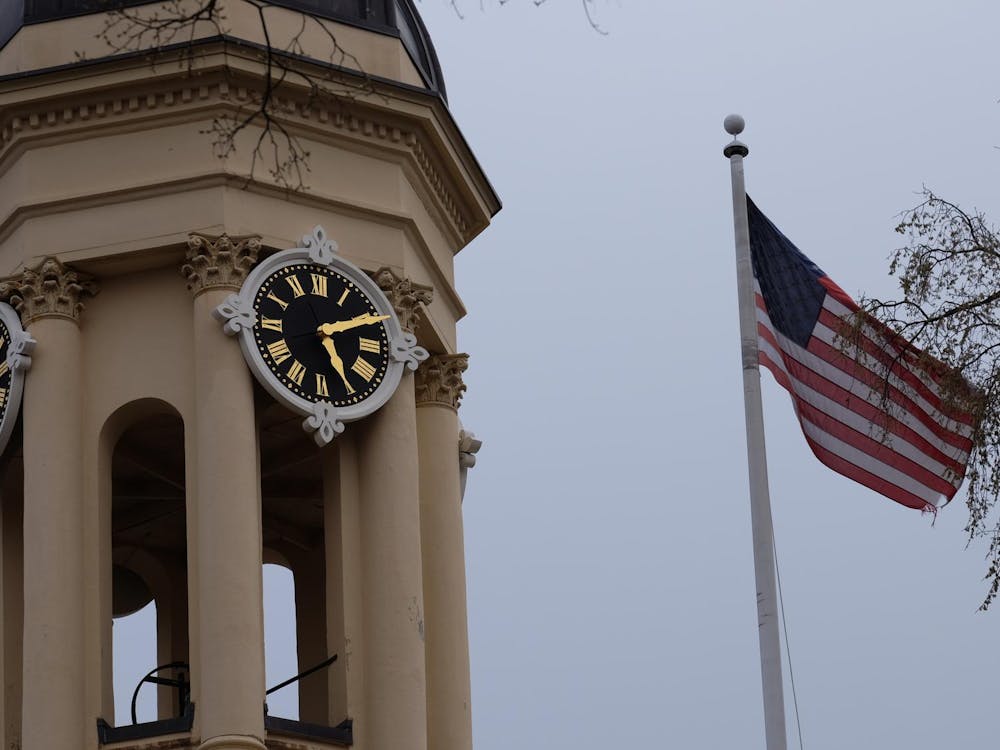Weaving in and out of pedestrians, jumping the curbs and flying down hills, I was making my way from Rockefeller College to Jadwin Gymnasium in record time. I’m obsessed with time and efficiency, and I found that by riding my bike, I could make it to wrestling practice 15 minutes faster. Overall, my bike was going to save me close to an hour of walking every day. It was the first significant thing I had ever bought with my own hard-earned money, and I had planned to have it ferry me around campus for the next four years.
I purchased my bike at 4 p.m. and by 5:30 p.m. that day it was gone. After I bought my bike, I rushed it over to the Friend Center and laid it against a bike rack. Thirty minutes later, I walked out, and it was nowhere to be found. I couldn’t believe it. In my excitement, I hadn't had time to buy a lock, and someone capitalized on my mistake. Never before had I been so angry and so disgusted. Being from a small, southern town, my family had never locked our house or cars, let alone bikes. My brother still leaves his keys in the ignition when he is away from his car! But when I walked out of the Friend Center, my innocence was shattered. My immediate reaction was one of anger and a desire for retribution, but I came to realize that committing injustice is worse than suffering injustice, and the worst injustice is the one that goes unpunished.
The number one crime at the University and other college campuses around the country is theft. What does a bike thief look like? I envisioned it was the sketchy looking guy with a hoodie skulking around in an alley, but what I have come to discover is that it can be anybody. Since my bike was stolen, many students have admitted to me that they themselves have stolen bikes on campus. They seem to think it is just part of a game in which they borrow a bike, ride it for a few days and then someone else steals it. It’s not a big deal to them because so many other students steal bikes, and no one gets caught.
But it’s not a game. I bet none of these people would walk into a convenience store and hold up the cashier for $1,000. They would never dream of shoplifting merchandise worth upwards of $500. But they do think it is OK to steal an expensive bike. This is likely because they think they will not be caught or experience the consequences of their actions.
In Plato’s"Gorgias," Socrates claims that committing injustice is far worse than suffering injustice. He states, “One who’s unjust and corrupt is miserable.” While this comparison may be hard to grasp, Socrates contends that committing injustice is uglier than suffering injustice. Therefore, if it is uglier to commit injustice, it follows that it exceeds suffering injustice in either pain or badness. So by exceeding it in badness, it follows that committing injustice is worse than suffering it. Finally, Plato argues that if one is given a just punishment for his actions, good things are done unto him. Therefore, “One becomes better in the soul if he is justly disciplined.”
Relating this to present times, thieves may be motivated to steal bikes because they think they will not be punished. But this is what makes it so morally devastating for the thief. Thieves by definition are thoroughly miserable and even more so if they are not given a chance to accept the just punishments for their actions. While this may not immediately manifest itself in the thief’s temperament, he has disrupted his moral fabric and is beginning to move down an immoral, miserable path. This creates a cycle of bad behavior that may result in more significant consequences in the future. So I urge you, if your bike is stolen, do not give in to the vicious cycle and steal another bike as retribution. Take comfort in knowing that you are retaining your moral righteousness and are continuing down the path of good behavior and happiness. And to all the bike thieves out there, give it up; stop stealing and return bikes.
Coy Ozias is a freshman fromChristiansburg, Va. He can be reached atcozias@princeton.edu.







